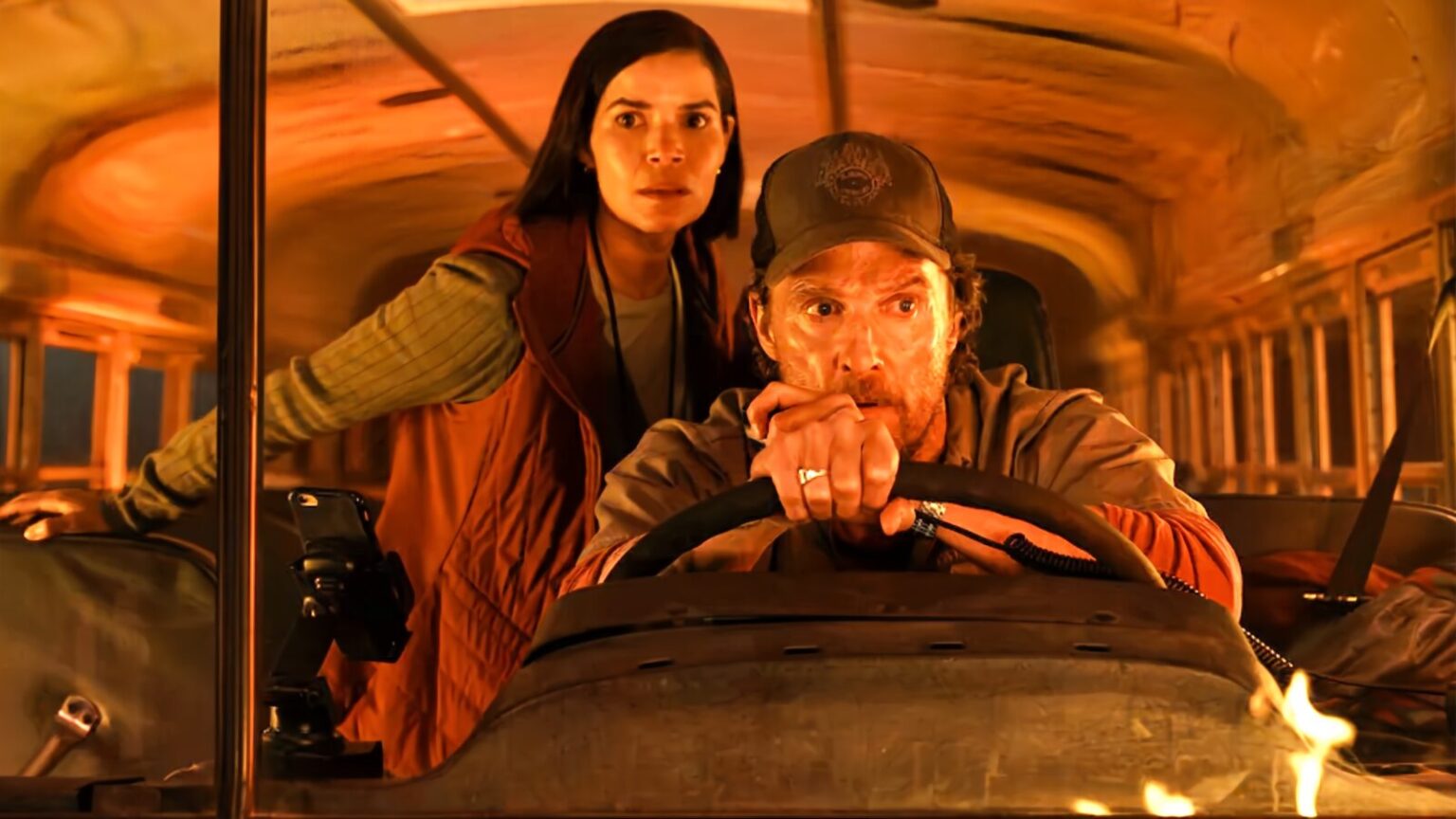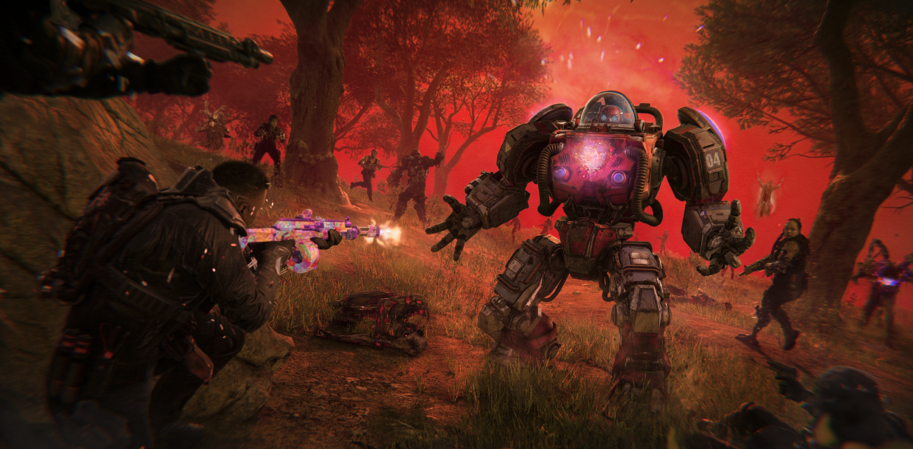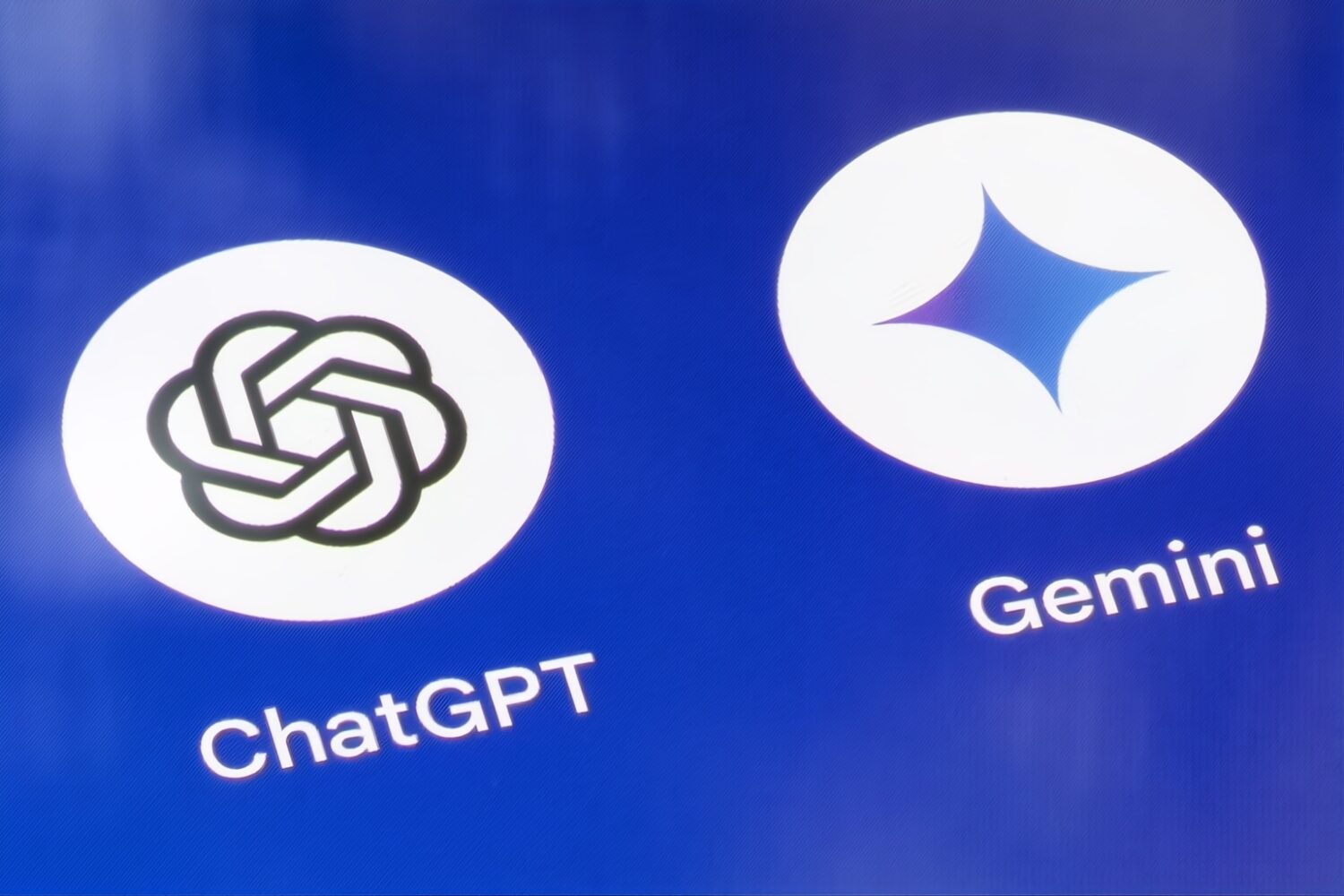TL;DR: A gripping, human-centered survival drama that trades spectacle for sincerity. McConaughey and Ferrera shine in Greengrass’s most emotionally honest film in years.
Brilliant Minds Season 2
There’s a certain kind of silence that comes before a wildfire. It’s not the peaceful hush of a sleepy morning or the calm before rain—it’s heavy, loaded, like the world is holding its breath. I remember that silence from my own childhood in Northern California, where every dry summer carried the threat of flames. So when I sat down to watch Paul Greengrass’s The Lost Bus, I didn’t expect to be entertained. I expected to be unsettled. And I was. But what I didn’t expect was to feel, in the middle of all that smoke and panic, something close to grace.
This isn’t your average disaster movie. There are no hero one-liners, no slow-motion escapes set to swelling orchestral scores. Greengrass, the man who turned shaky-cam realism into a cinematic signature with United 93 and Captain Phillips, brings the same urgent empathy to The Lost Bus. The result is a film that trades spectacle for sweat, and special effects for the sheer, terrifying ordinariness of people doing their best when the world has turned to hell.
The story is simple enough to sound almost mythic. A wildfire sweeps through a small California town. A school bus, filled with children, becomes trapped between walls of fire. The driver, Kevin—played with quiet, rumpled dignity by Matthew McConaughey—must find a way out. Alongside him is Mary, a teacher played by America Ferrera, whose steel and warmth hold the terrified children together as much as Kevin’s steering wheel does. But the simplicity of the premise hides something much deeper. This isn’t about fire. It’s about people—their fragility, their courage, their bad decisions and their good ones—and what it means to lead when every instinct is screaming to run.
The first thing Greengrass does right is make us feel trapped. The camera rarely leaves the bus. It shakes, it stumbles, it gasps for breath just like the people inside it. The sound design is merciless—crackling flames, coughing children, the dull thud of branches falling onto metal. You don’t watch The Lost Bus so much as endure it. And yet, there’s beauty in that endurance. McConaughey’s Kevin isn’t some stoic Marlboro Man archetype; he’s just a guy trying not to lose it in front of a bunch of kids. He makes mistakes. He hesitates. But he keeps moving. And that movement—hesitant, desperate, human—is what makes the movie so magnetic.
There’s a moment, maybe halfway through, when the bus stalls on a narrow mountain road. Smoke is pouring in through the vents, and one of the kids starts to panic. Kevin’s voice, barely holding steady, cuts through the chaos. “Hey,” he says, “look at me. We’re gonna get through this, alright?” It’s not heroic. It’s barely convincing. But it’s exactly what leadership looks like in real life: a scared adult pretending to be brave so that someone smaller can feel safe. That’s the quiet brilliance of McConaughey’s performance. It’s not showy, it’s not cinematic—it’s recognizably human.
Greengrass’s direction, as always, is unrelenting. He has this uncanny ability to make the familiar feel immediate. Every frame feels like it was shot by someone who just happened to be there, phone camera trembling, smoke burning their eyes. It’s chaotic, yes, but that’s the point. The Lost Bus doesn’t offer the comforting rhythm of traditional disaster movies; there’s no clear arc, no guaranteed rescue. Instead, it gives us the rhythm of panic—the way time slows down and speeds up, the way small details (a child’s cough, a spark on the seat upholstery) suddenly become unbearable.
America Ferrera’s Mary is the film’s soul. She’s the anchor, the maternal presence who refuses to let fear take over. There’s a moment where she starts singing softly to the children, just to distract them from the roar outside. It’s heartbreaking in its simplicity. Ferrera brings a natural strength to the role, the kind of quiet competence that feels lived-in. Her chemistry with McConaughey is understated but powerful—two people who barely know each other, suddenly bound by a shared mission: survive.
What makes The Lost Bus truly exceptional, though, is what it doesn’t do. It doesn’t lecture. It doesn’t moralize. It doesn’t turn tragedy into entertainment. Instead, it captures survival as it really is: messy, uncertain, often undignified, and occasionally miraculous. The children aren’t reduced to cute plot devices; they’re real, scared, funny, and sometimes annoying, just as real children would be. The film never forgets that they’re the ones carrying the heaviest burden—the burden of not understanding.
And that’s what lingers after the credits roll. Not the flames, but the faces. The exhaustion etched into Kevin’s eyes. The soot-streaked cheeks of a child clutching a stuffed animal. The raw, trembling relief when they finally see a stretch of clear road. The Lost Bus earns its emotion honestly. It’s a film about how empathy, resilience, and sheer stubborn humanity can outlast even the most merciless circumstances.
In a world where most disaster films rely on CGI and bombast, Greengrass’s restraint feels radical. He reminds us that survival stories don’t need to be loud to be powerful. Sometimes, they just need to be true.
Verdict:
The Lost Bus is tense, raw, and unexpectedly tender. It’s less about fire and more about what burns inside us when we’re pushed to the edge. Greengrass directs with empathy, McConaughey grounds the chaos with quiet gravitas, and Ferrera provides the heart that keeps the whole thing from collapsing into despair. A survival film that doesn’t just thrill—it humbles.







